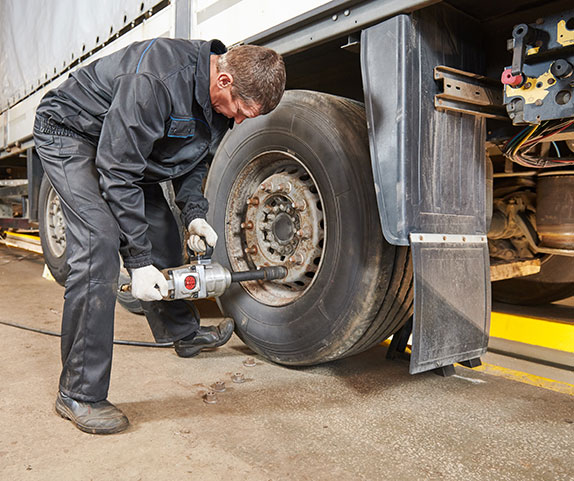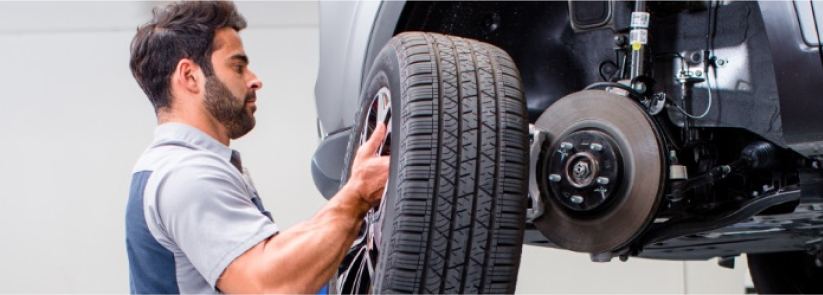Drive with Confidence: GMC Tires Service at Morris Tires
Drive with Confidence: GMC Tires Service at Morris Tires
Blog Article
Tire Solution: The Influence of Climate Condition
When it pertains to guaranteeing optimal performance and safety when driving, understanding the effect of weather problems on tire solution is vital. From scorching warm to icy roads, each weather element can considerably influence tire performance and total driving experience. By diving right into the effects of varying weather on tires, vehicle drivers can acquire useful insights that may improve their automobile's efficiency and long life. In this conversation, we will discover the intricate relationship between weather and tire service, clarifying the relevance of weather-specific tire upkeep techniques and considerations.
Warm and Tire Efficiency
When subjected to high temperatures, tires experience changes in efficiency that can substantially influence car safety and handling. The warm produced from long term driving or warm climate conditions triggers the tire rubber to soften, resulting in minimized tread life and raised wear. As the rubber comes to be softer, the tire's hold when traveling reduces, influencing stopping distances and general grip. In extreme situations, excessive warm can also cause tire blowouts, positioning a serious safety threat to the car and its owners.

Winter Results
Cold weather condition problems can have a considerable influence on tire performance and safety and security. In cold weather, tires may also lose air stress much more quickly, which can influence dealing with and fuel performance.
To alleviate the impacts of winter on tires, it is crucial to regularly check tire pressure and inflate them to the producer's suggested levels. Using wintertime or all-season tires made for winter conditions can additionally improve traction and grip on icy or snowy roadways. Proper tire upkeep, consisting of regular examinations for wear and damage, becomes a lot more critical during cooler months to make certain ideal efficiency and safety and security.
Rainy Conditions Influence
Tires with damaged footsteps are a lot more vulnerable to hydroplaning, where a layer of water develops up between the tire and the roadway surface area, leading to loss of grip. To battle this, chauffeurs should consistently inspect their tires for ample walk deepness and take into consideration investing in tires specifically developed for wet problems.
Additionally, rainy weather condition can also lower exposure, making it testing for motorists to see the roadway ahead clearly (GMC Tire Service). In such conditions, it is necessary to change driving speeds accordingly and maintain a safe following range to enable unexpected stops. Appropriately inflated tires can also aid in maintaining control on damp roads by offering better handling and hold
Snow and Tire Safety
Snow-covered roads position distinct difficulties for motorists, stressing the importance of correct tire selection and maintenance. When driving in snowy conditions, having the best tires can make a substantial difference in safety and efficiency. Winter season tires are made with unique rubber substances and tread patterns to supply far better traction on snow and ice contrasted to all-season tires. The much deeper treads and sipes of winter tires help grasp the roadway much better, decreasing the danger of gliding and sliding.

It is vital to adhere to producer instructions when setting up and making use of tire chains to prevent damage to the tires and car. By picking the appropriate tires, preserving correct inflation, and considering extra grip aids like tire chains, motorists can improve their security when navigating snow-covered roadways.
Weather-Related Tire Maintenance
When encountered with different climate problems, correct tire maintenance becomes an important facet of automobile safety and efficiency. Weather-related tire upkeep encompasses a series of practices targeted at making sure optimum tire function and durability in different weather situations. One key element of weather-related tire upkeep is tire pressure policy. Fluctuating temperature levels can create tire pressure to differ, impacting view website traction and gas effectiveness. Consistently inspecting and adjusting tire stress according to maker suggestions is essential for safe driving in transforming climate condition. Additionally, tire step depth plays a substantial duty in managing various weather condition elements. Tires with sufficient step depth supply much better grasp on damp or icy roads, decreasing the risk of skidding or hydroplaning. Examining tire walk consistently and changing tires when walk wear reaches a particular depth is essential for maintaining grip and stability in damaging weather. By prioritizing weather-related tire maintenance, motorists can enhance safety and security, enhance automobile performance, and lengthen the lifespan of their tires.
Conclusion
In final thought, weather have a substantial effect on tire performance and safety. From warmth impacting tire pressure and use to winter minimizing grip, it is important to take into consideration the weather condition when maintaining and utilizing tires. Wet conditions can lower grip and bring about hydroplaning, while snow can enhance the danger of mishaps if tires are not appropriately outfitted. Weather-related tire maintenance is crucial in ensuring ideal performance and safety and security when driving.
In this conversation, we will certainly discover the intricate relationship between climate problems and tire service, shedding light more on the value of weather-specific tire maintenance methods and considerations.

Report this page